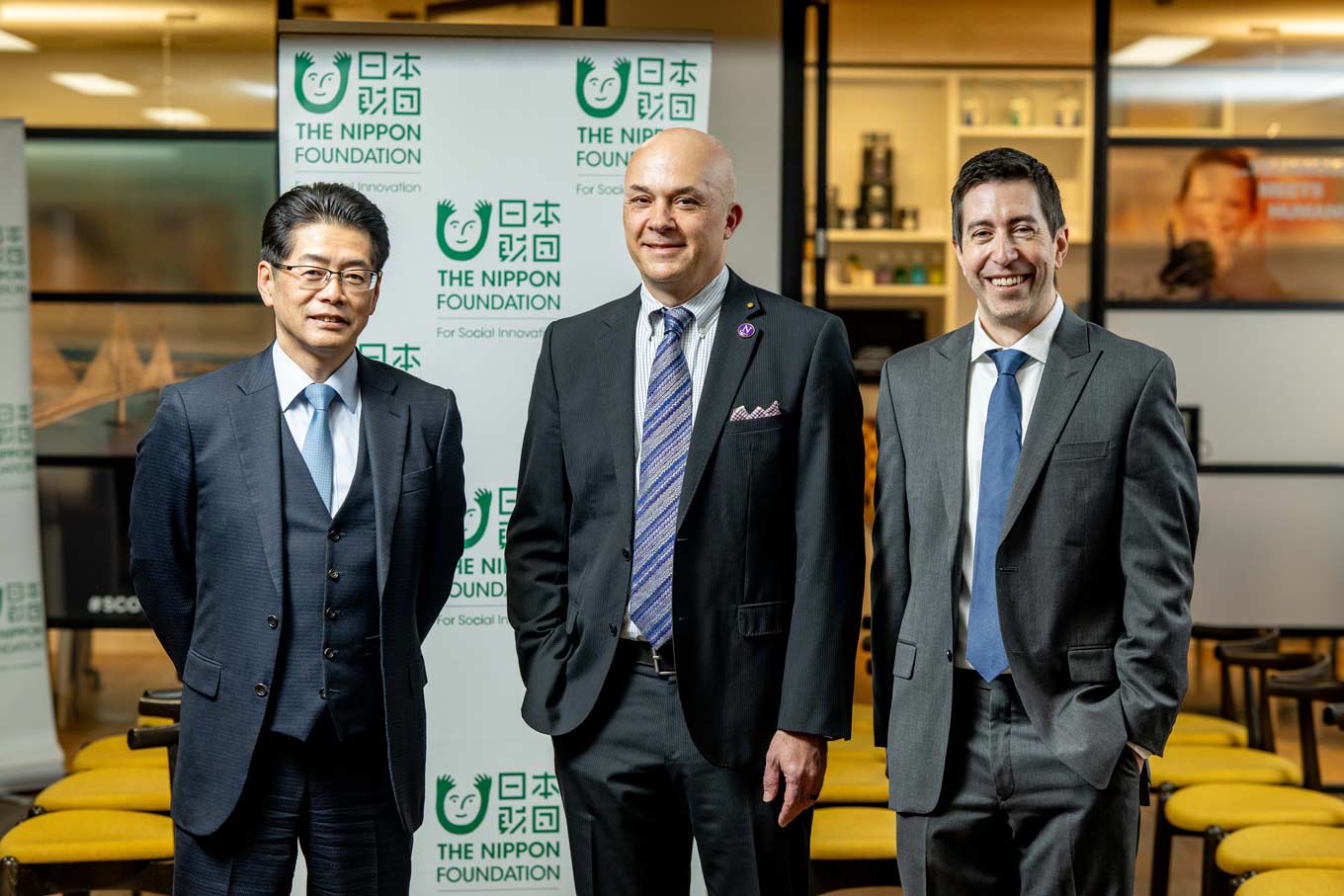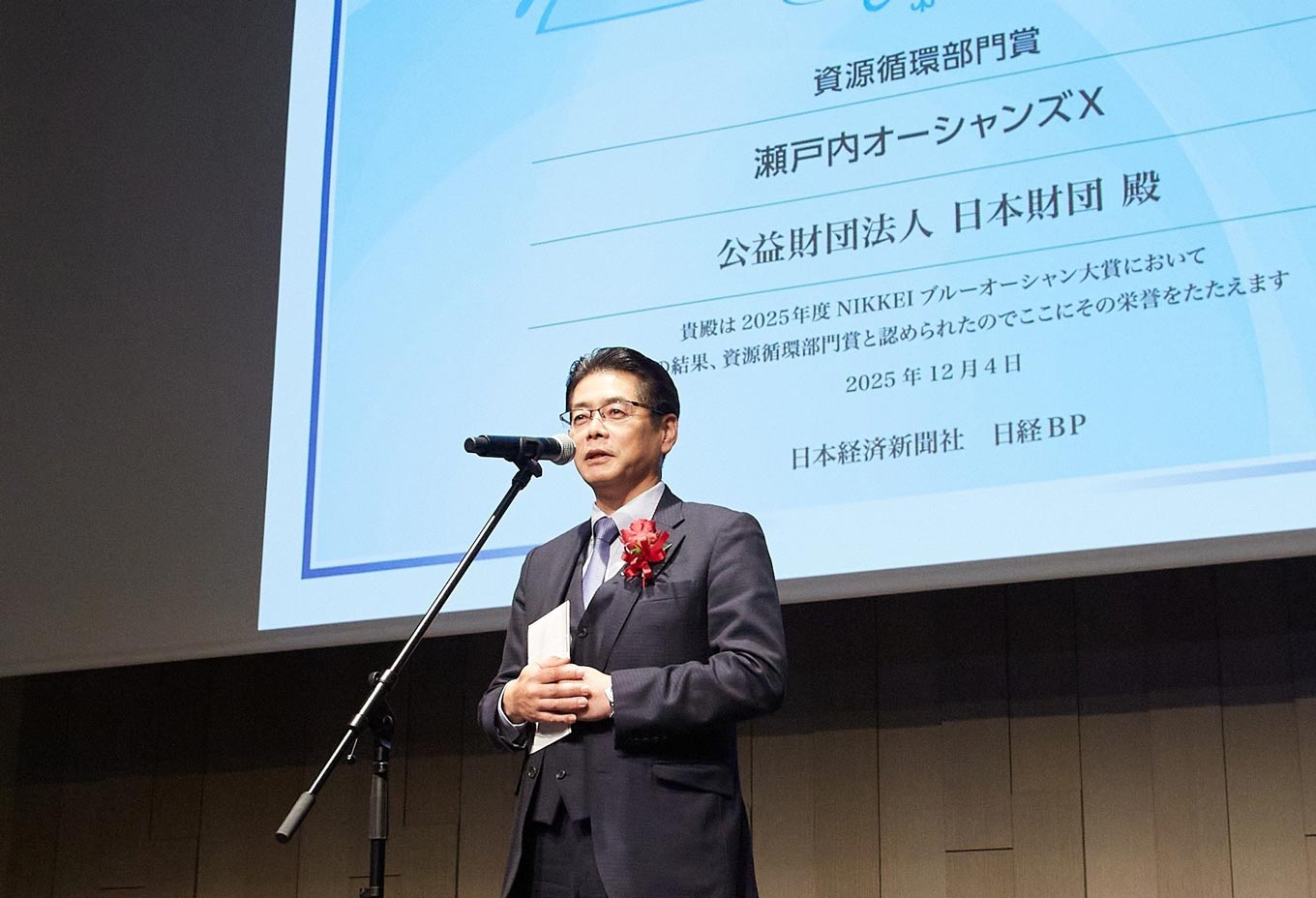Awareness Survey of 18-Year-Olds – Use of Separate SurnamesResults of 73rd installment announced – 20% of respondents believe use of same surname should be maintained, close to half of women want to use spouse’s surname

The 73rd installment of the Awareness Survey of 18-Year-Olds was carried out in August on the theme of a “System to Allow Use of Separate Surnames.” Under current Japanese law, a husband and wife must use the same surname after marriage. This is an issue that will be debated at the extraordinary Diet (parliament) session expected to be called next month, and there are major differences in position among political parties. The survey found that roughly 70% of respondents “Are interested” in the subject. Among all respondents, roughly 20% replied that the present system should be maintained, but among female respondents the percentage was less than 13%.
The top reason cited for opposing the use of separate surnames was that it “Would make children’s surnames complicated,” while the most cited replies for allowing separate surnames were “Diverse family structures are desirable” and “Being able to choose is consistent with the times.” There was also a large gap in attitudes regarding the handling of surnames when a couple marries, with roughly 40% of respondents saying that it is “Important” while more than 50% said it is “Not important,” and more than one-third replying that that when they marry, they “Want to decide after discussing with my spouse.” Less than 10% of male respondents, but 45% of female respondents, replied that they “Want to use my spouse’s surname.” In addition, one in three respondents who voted in the July Upper House election said that they referred to each party’s position on the issue of separate surnames when casting their vote.
Highlights of the 73rd Awareness Survey of 18-Year-Olds – Use of Separate Surnames
View regarding use of separate surnames
The current system should be maintained
- Among all respondents – 20.5%
- Among male respondents – 22.7%
- Among female respondents – 12.9%
Top reason for those who replied either the “Current system should be maintained” or “Even if a person changes their surname, there should be more areas in which they are able to continue to use their maiden name”
- Would make children’s surnames complicated – 36.4%
Couples who wish to use separate surnames should be allowed to
- Among all respondents – 47.6%
- Among male respondents – 42.5%
- Among female respondents – 53.0%
Top reason for those who replied “couples who wish to use separate surnames should be allowed to”
- Diverse family structures are desirable – 55.5%
Surname when getting married
Want to decide after discussing with my spouse
- Among all respondents – 36.4%
- Among male respondents – 40.5%
- Among female respondents – 32.3%
Want to use spouse’s surname
- Among all respondents – 27.1%
- Among male respondents – 9.2%
- Among female respondents – 45.2%
Policy positions on use of separate surnames (among respondents who voted in the July Upper House election, excluding those who did not wish to reply)
Position on use of separate surnames was most important issue or was one of the issues considered to the same extent as other issues
- Among all respondents – 36.6%
- Among male respondents – 35.8%
- Among female respondents – 37.5%
Survey Excerpts
View regarding use of separate surnames
What is your view regarding the use of separate surnames?
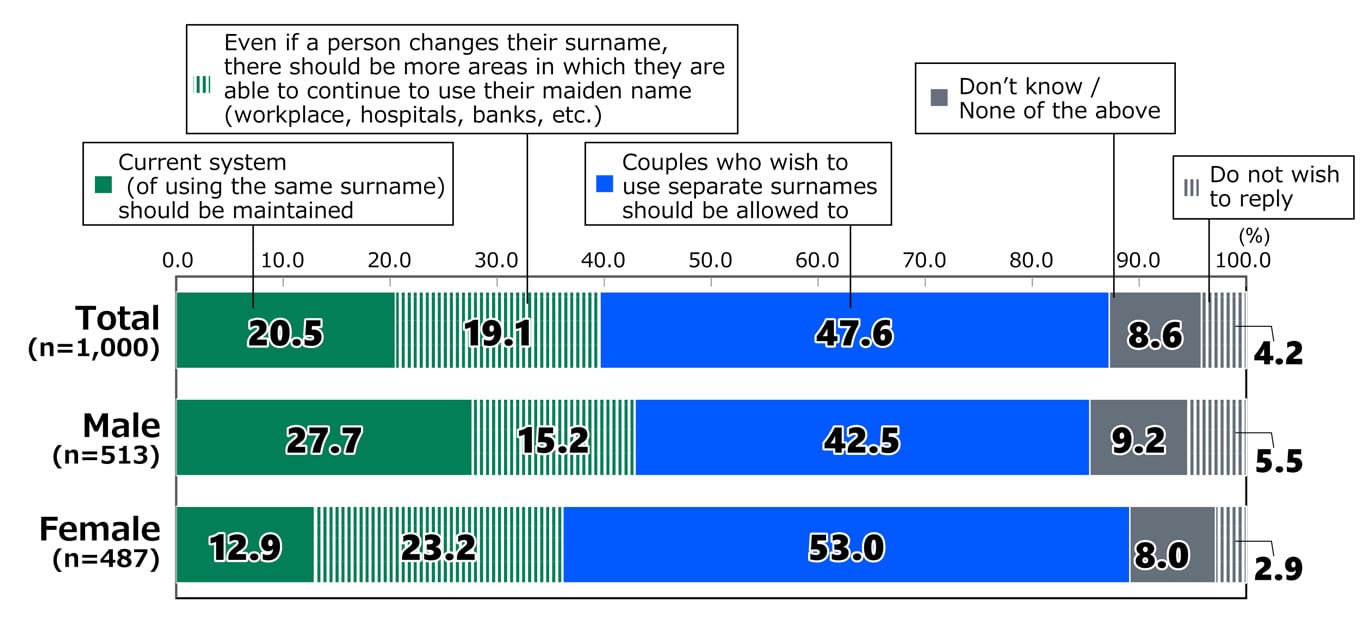
Surname when getting married
Which surname do you intend to use when you get married (among respondents who replied that they want to get married in the future)?
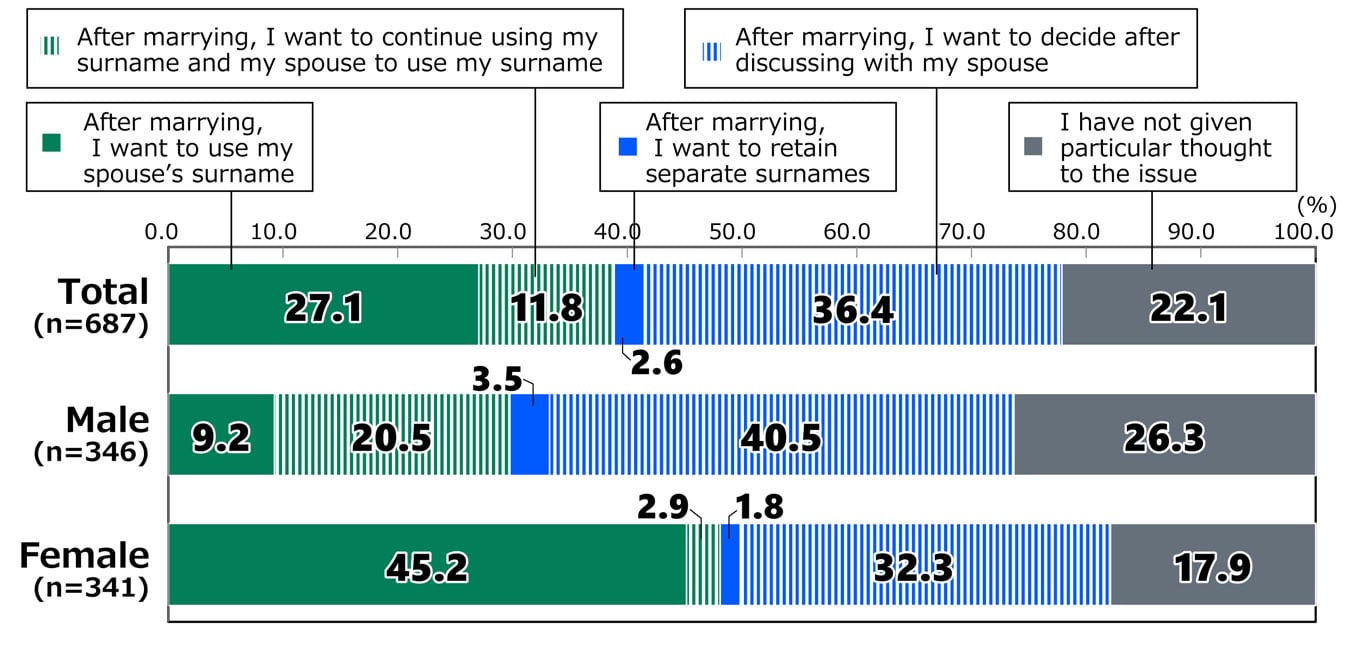
Consideration of policy position on use of separate surnames when voting (among respondents who voted in the July Upper House election, excluding those who did not wish to reply)
When voting in the July Upper House election, how important was a candidate’s or party’s policy position on the use of separate surnames?
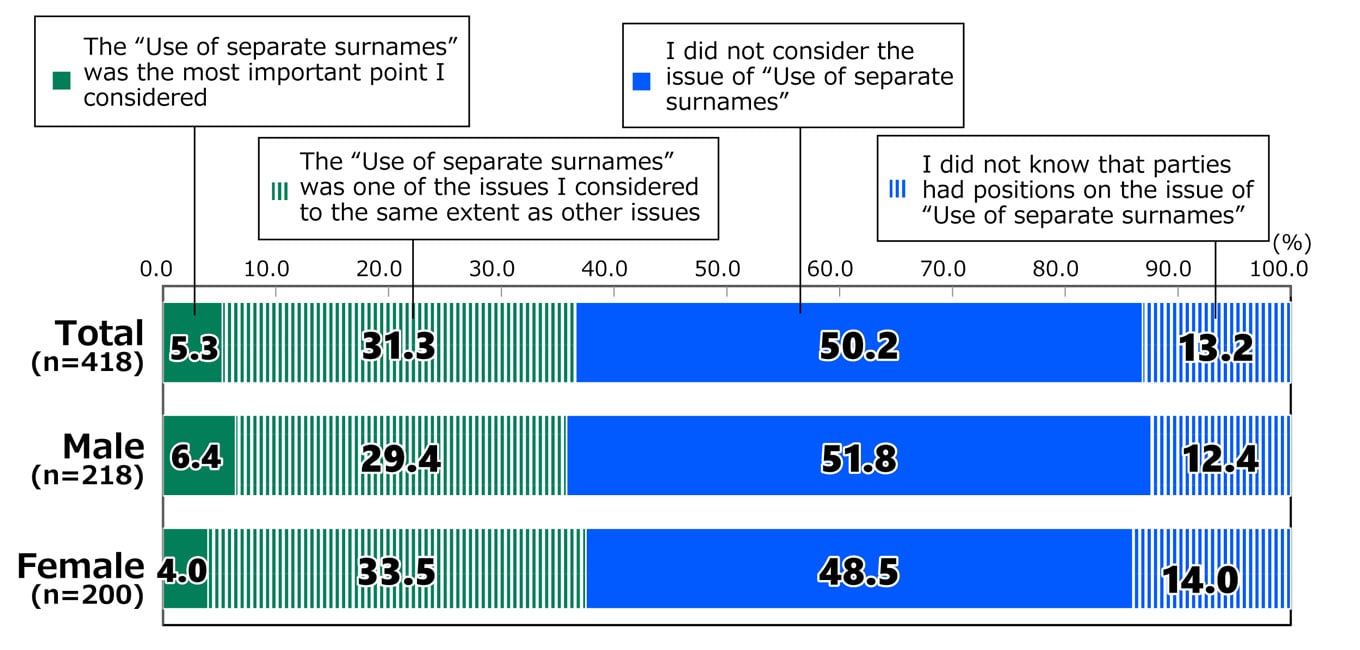
About the Awareness Survey of 18-Year-Olds
Revisions to Japan’s Civil Code lowering the age of adulthood to 18 for a range of activities, including voting, took effect in April 2022, making it even more important to understand and record the awareness of the 18-year-olds who represent Japan’s next generation. With this in mind, in October 2018 The Nippon Foundation launched the Awareness Survey of 18-Year-Olds as an ongoing survey of young men and women across Japan aged around 18, to survey their values, attitudes toward politics and elections, understanding of social issues, and other current themes on an ongoing basis.
About the 73rd Installment – Use of Separate Surnames
| Survey coverage | 1,000 respondents comprising male and female respondents aged 17-19 from across Japan |
|---|---|
| Survey period | August 15-17, 2025 |
| Survey method | Internet survey |
Related Link
Contact
Global Communications Team
The Nippon Foundation
- Email: info_global_communication@ps.nippon-foundation.or.jp
